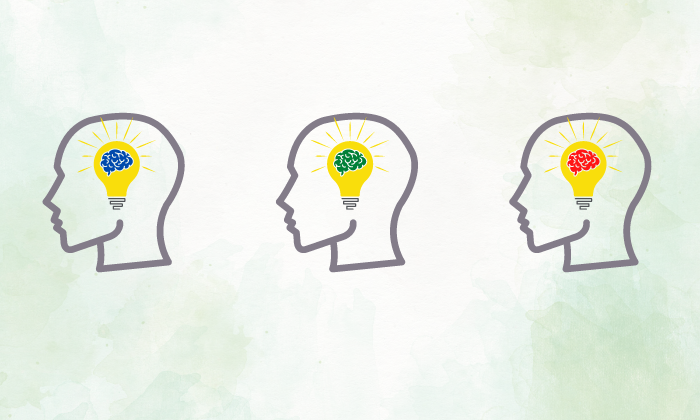By Heather Putney, PhD, LMFT, CSAT, EMDR-CIT
As I write this post, many of my “parts” are very activated. I have excited parts, fearful parts, nerdy/academic parts, helper parts and “not good enough parts” that are nervous about how this information will land. I put this blog out to help my clients, fellow clinicians, and as many people as I possibly can, learn about various mental health conditions and connect them to resources.
However, this post is different. It is personal. It’s a “coming out” of sorts as a clinician and mother who struggles daily with the impact of Neurodivergent wiring both personally, as a parent of children who are likewise challenged. Fortunately, I have developed a strengths-based approach to how I conceptualize and manage neurodiversity and its impact in my life and that of my family and clients. ADHD is both my achilles heel and the wings that help me soar. For those who haven’t been able to see the silver lining of this condition in their own lives or that of their family members, trust me it is there. Once you know yourself, you can figure out how to leverage your strengths and anticipate where your weaknesses will be most triggered and plan accordingly.
On the flip side, if you don’t know much about Neurodiversity, you may not understand just how it impacts your life. You may find your inner critic or others around you blaming you for being “lazy”, “too much,” “too sensitive,” “oppositional,” “weird,” “quirky”, a “drama queen”… The list goes on and on. My hope is that by reading this post, you can know that you are not alone. There is a reason that you respond to life the way you do. Knowledge can lead to empowerment and healing. I hope that this blog can be the first step that leads you (or your family members, friends, or clients) further down the path to healing and self-acceptance.
(Shattered) Reflections of Myself
As an ADHDer who felt like I put the “H” in “ADHD” as a kid, I have long been aware of the presence of ADHD in my life. As a female who was blessed with a decent IQ, I was able to develop enough coping strategies or “masks” to mostly get by in school so I didn’t focus too much on my ADHD, nor its impact on my life. In fact, it wasn’t until I was forced to intervene with a teacher who was threatening to fail my son for “not learning to read even though he is clearly intelligent” and being “oppositional”, that my naïveté of being ADHD in a Neurotypical world was shattered.
In order to help my son, whose Executive Functioning weaknesses were both similar and different from mine, I was forced to do a deeper dive into the world of ADHD. After extensive testing, ADHD, Autism, Sensory Processing challenges, and Dysgraphia were identified. My son’s psychologist ultimately recommended stimulants in order to help him learn to read. While his IQ was impressive, his sustained attention abilities were so poor that it was not likely he would be successful at learning to read without biochemical support. The psychologist warned that he was perceptive of his inability to compete with his peers and was feeling inadequate. Furthermore, his teacher viewed him as ODD and he was stuck in a negative feedback loop with her, leading to school avoidance, and was developing some very poor self-talk.
As a holistically-minded person who was never medicated as a child, I anguished over this decision. However, after just two days on medication, his teacher’s attitude turned around. I quit getting nastygrams on his homework about how long it took him to do the assignment because he “wasn’t trying”. He was able to quickly catch up with his classmates and avoided the shame of being held back. Although he continues to have some struggles with social skills and other neurodiversity-related challenges; that simple intervention rapidly changed the trajectory of his life.
Although medication was a crucial component to giving my son the ability to focus enough to learn to read and perform better at school, it was not the only intervention necessary to support him. I will say that the use of the stimulant gave the unexpected side benefit of significantly helping him manage his intense emotions and flooding. It seemed to provide “brakes” to slow down the reaction enough to apply the coping strategies we had taught, which he couldn’t access when he got flooded so quickly. Over the years, we have also used OT, therapy, PCIT, and most recently Neurotherapy to achieve impressive results. But, this will continue to impact him developmentally and we will continue to support him as his needs change along the way. Medication is not a silver bullet, but it did have the most drastic, immediate effect/improvement compared to the other supports we had tried to that point. While not necessary in all situations, medication can be an important part of the puzzle for certain clients.
Neurodiversity and Trauma
I share this detailed background to highlight how easily trauma can be induced as a neuro minority trying to fit into a neurotypical world- especially the school system. Had I not had my own lived experience, training, and resources, which all added up to a great deal of privilege, the true source of my son’s struggle may not have come to light. He may not have received the necessary interventions to shift the trajectory of his academic future and, even more significantly, his internal self-narrative. Sadly, many of our clients and large sections of society are not as fortunate.
As I began to learn more, I began to see all the different ways ADHD had impacted my life including: struggling socially as a kid, being bullied, struggling with intense emotions and impulsivity which contributed to disordered eating and severe Rejection Sensitive Dysphoria (RSD). I began to unpack more and more wounding as a result of my “divergent wiring.” Fortunately, and perhaps because of my initial ignorance of these impacts, I had developed a relatively positive view of the role ADHD played in my life. I appreciated the extra energy that let me get so much accomplished. I enjoyed the excitement, passion, and intensity my hyper-focus brought to my life. Without it, I am sure I never would have completed my over-the-top Dissertation about Relational Satisfaction in Modern-Day Couples. I appreciated the out of the box thinking that my wiring provided me. I have had some people comment on my use of ADHD to describe myself as negatively labeling myself. However, I reject that concept and embrace the fact that my diverse wiring is an integral part of who I am and significantly contributed to all I have achieved; I would not be where I am without it.
On the flip side, I under-appreciated how it made me the target of bullying, made it difficult to regulate intense emotional experiences and contributed to severe insecurities leading to the development of a strong “pleaser” personality; frequently at the expense of my own needs. In light of this, I was saddened, yet not surprised, to learn that 82% of adults with ADHD reported to have experienced trauma. (Mental Health Report: Trauma Haunts 82% of Adults with ADHD).
Neurodiversity, Trauma and Addiction
There is a strong link between trauma and developing an addiction. A NIH study found that more than 70% of adolescents in treatment for substance abuse had experienced trauma. (Traumatic Stress and Substance Abuse Problems) Several studies found that 25-76% of traumatized youth developed substance abuse disorders (Making the Connection: Trauma and Substance Abuse). Interestingly, we may also have a chicken and egg effect where 45-66% of adolescents experienced SUD prior to traumatic exposure; indicating that trauma may be a predisposing factor as well as a consequence of addiction.
Neuroscience has also identified several genetic links and brain functioning patterns such as dopamine deficits, dysfunctional reward systems, and deviant connectivity in the brain which increase the probability of developing an addiction (Clinical Outcomes in Addiction: A Neurofeedback Case Series, Attention-deficit-hyperactivity disorder and reward deficiency syndrome., The Reward Deficiency Syndrome: A Biogenetic Model for the Diagnosis and Treatment of Impulsive, Addictive and Compulsive Behaviors).
As a Certified Sex Addiction Therapist (CSAT) working with couples and individuals impacted by addiction, I found that some of my most intractable sex addiction cases, where I felt the client was making significant effort yet was unable to achieve long-term sobriety, frequently had unidentified or untreated impulse-control disorders. By identifying and treating this element early, frustration with sobriety challenges and even relationship loss due to lack of sobriety traction could be reduced or avoided. I now screen all of my clients for ADHD and/or Executive Function Challenges and incorporate the strengthening of these components into my treatment plans. Below are some of my favorite resources for supporting and identifying Nerurodiverse clients and their families.
I am more than happy to answer any additional questions or provide additional consultation around these themes.
– Dr. Heather Putney
Copyright © 2022 by Dr. Heather Putney and Untethered Therapy
ADHD Resources: Click here for a listing of ADHD resources, including books, articles, podcasts, and more.)

